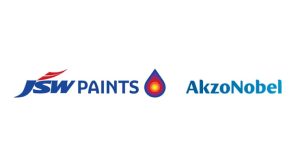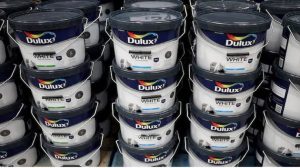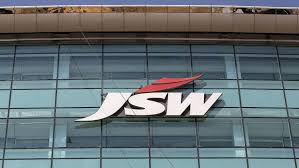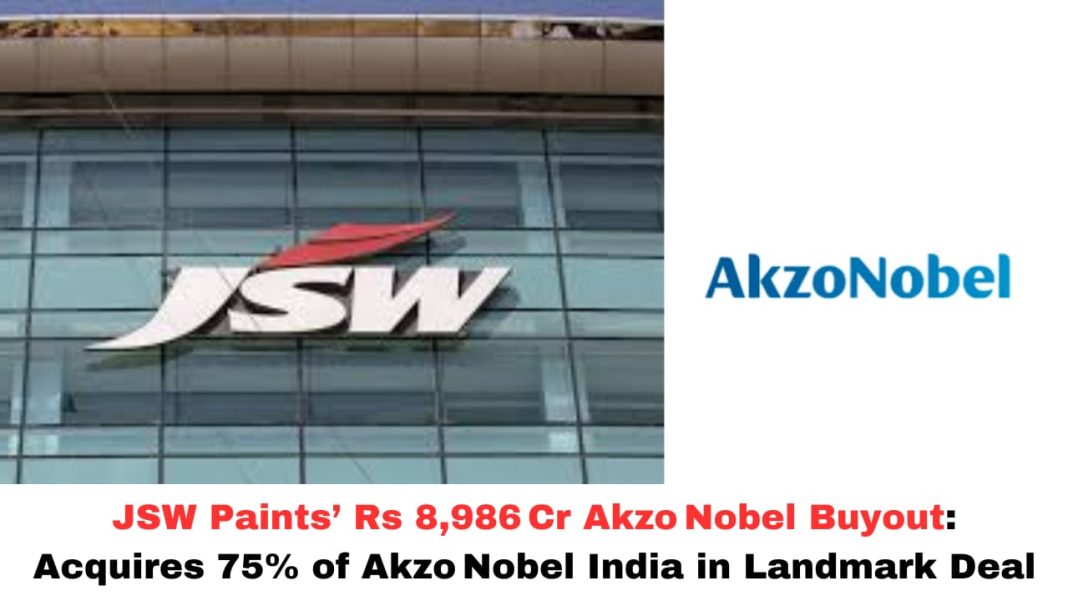Digital News Guru Business Desk:
JSW Paints, part of the diversified Sajjan Jindal–led JSW Group, announced its acquisition of a 74.76% stake in Akzo Nobel India—the maker of iconic brands like Dulux, International, and Sikkens—for approximately Rs 8,986 crore (about US $1.05 billion). This landmark purchase, structured on an enterprise value above €1.4 billion (US $1.64 billion), ranks among India’s largest-ever paint sector deals.
A Deal That Paints a New Landscape
The structure of the deal is notable: JSW bought the majority stake from Akzo Nobel NV and its affiliates at Rs 2,762.05 per share, a considerable ~16–17% discount to pre-announcement prices.

Simultaneously, it announced a mandatory open offer at Rs 3,417.77 per share, aiming for up to 100% ownership. Already, Akzo Nobel India’s share price surged over 10–11%, touching 3,192–3,455 range on Thursday, June 26–27
Strategic Expansion: From Steel to Paint
JSW Paints, launched in May 2019 under MD Parth Jindal (Harvard grad), started with two plants—Vasind (industrial) and Vijayanagar (decorative)—and rapidly scaled up capacity. The Akzo deal shifts its trajectory dramatically. JSW jumps to become the 4th-largest decorative paints player in India, challenging industry stalwarts: Asian Paints, Birla Opus, and Berger . Additionally, the acquisition boosts JSW’s industrial coatings portfolio, positioning it as a close competitor to Kansai Nerolac.
Equally significant is gaining the premium segment—Akzo’s Dulux brand commands 20%+ share of India’s Rs 15,000 crore premium decorative paints market, with pricing premiums of 30–50% above mass-market brands. By integrating Dulux with its cost-efficient operations, JSW aims for a broad-based market cover.
Financing the Mega Deal
To fund this, JSW is arranging Rs 4,000 crore in debt from global lenders like Barclays, MUFG, Standard Chartered, alongside international credit funds—supported by Morgan Stanley. The balance comes from promoter equity, including a Rs 1,210 crore block-sale of JSW Infra stake, and internal family capital .
Synergies on the Horizon
Analysts highlight significant upside potential:
- Brand–cost synergy: Dulux brings premium pricing and brand loyalty, while JSW brings scale and cost efficiencies—potentially lifting margins by 4–5 bps .
- Expanded distribution: More than 15,000 retail touchpoints across 500+ cities accelerate reach.

- Diversified growth: JSW balances rural/mass and urban/premium segments with a hybrid portfolio .
Challenges That Lurk
Yet, execution risks loom:
- Integration complexity: Merging JSW’s industrial setup with Akzo Nobel’s premium culture and systems is onerous. Analysts suggest competitors may use the transition window to strengthen their foothold.
- Debt strain: Despite robust financing, added debt may tighten leverage, especially if raw material prices (like titanium dioxide, solvents, crude-related inputs) remain volatile .
- Regulatory oversight: The deal awaits Competition Commission of India (CCI) approval and successful execution of its open offer.
- Market headwinds: Slowing urban demand, cost pressures, and new entrant competition (notably Birla Opus and Grasim) could erode near-term profitability.
Market Valuation & Reaction
The market assigned a ~17% discount to the per-share purchase price compared to pre-deal trading, reflecting cautious sentiment. However, with Akzo Nobel India’s share buying momentum and JSW’s financing clarity, fundamentals appear robust.
Deal analytics: Enterprise Value at roughly 22× EV/EBITDA, aligning with industry premiums—a sign of confidence in future profitability.
What Lies Ahead
- Regulatory clearance: CCI review expected in Q3–Q4 2025.
- Open offer execution: Mandatory tender to public shareholders to reinforce control.
- Deal closure/closing adjustments expected by Q4 2025.
- Integration thrust & potential IPO of the combined entity within 18–24 months, is touted by analysts .

Final Take
JSW’s acquisition of Akzo Nobel India is a bold leap—a Rs 9,000 crore strategic move to lead rather than follow in India’s fast-growing Rs 90,000 crore paint sector. The union of Dulux’s premium legacy with JSW’s industrial muscle could reshape market hierarchies. While the path will test integration discipline, capital prudence, and regulatory navigation, the potential payoff is a multi‑brand paint powerhouse delivering scale, margins, and market leadership.
You May Also Read: SCO Summit: India Refuses to Sign SCO Defence Joint Statement








